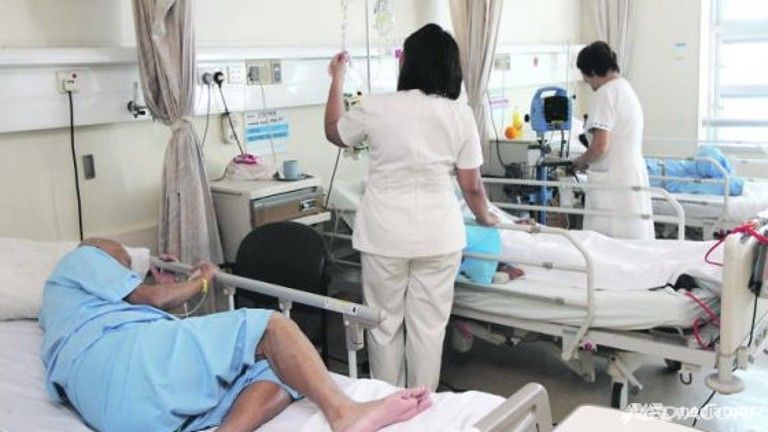What should we do to get ourselves a spare bed in the hospital when in a desperate need?
I refer to the article “Patient could not get place in SGH, hit with $78k bill” (Straits Times, Oct 11).
It states that “Besides the request to help pay his bill of about $80,000, the family claims Mr Thomas Lukose, 55, could not get a place in a public hospital.
The appeal on the website says: “We have been trying to get him transferred to SGH (Singapore General Hospital) where the cost will be lower, however the efforts have not been successful as there isn’t an ICU (intensive care unit) slot available, and it will be risky to keep waiting any longer. Therefore, we have no choice but to go ahead with operation at Gleneagles.”
Mr Lukose suffered a heart attack on Sept 12 at Gleneagles Hospital while on night duty as a security guard and was taken to the hospital’s emergency department immediately.
The next day, his family wanted him transferred to the National Heart Centre Singapore (NHCS) because his insurance only covers him for subsidised care, but they faced two stumbling blocks.
Mr Lukose’s condition was so severe that he was put on a ventilator and needed intensive care. But the NHCS had no spare bed in its intensive care unit, so there was no possibility of an immediate transfer.
Dr Lee Suen Ming, chief executive officer of Gleneagles Hospital (GEH), said: “After the first transfer request was unsuccessful, doctors at GEH proceeded with the patient’s treatment plan to ensure the best clinical outcomes possible for the patient.”
An NHCS spokesman told The Straits Times: “The transfer could not be effected immediately as there was no available bed in our CCU (coronary care unit) then.”
What’s the point of a mandatory national health insurance scheme which is designed to cover public hospital class C and B2 treatment, when there are no available hospital beds?
On Sunday (8 October) – my friend’s 84 year old mother (Mdm Lee) had a medical emergency and was immediately sent to the Accident and Emergency (A & E) at Tan Tock Seng Hospital – but was told that there would be a wait of about 10 hours for a bed.
So, she was transferred to Raffles Hospital.
However, according to my friend – the hospital informed them that they would not be eligible for the subsidised rate treatment (6 bedded ward), because she had come to the hospital by private transport, instead of an ambulance (shall try to give an update later as to what’s happening and the outcome as she is still in the hospital).
S’pore’s hospital beds increased 2.8% from 2001 to 2016?
In this connection, the number of total hospital beds in Singapore was 11,936 in 2001 and only increased by about 2.8 per cent to 12,268 (12,268 divided by 11,936 beds) from 2001 to 2016.
Population increased 37% by 1.51m?
Against this, the population has increased by 37 per cent from 4.1 million in 2001 to 5.61 million in June 2016.
Hong Kong’s ratio of hospital beds double S’pore’s?
There were a total of 31,819 hospital beds in Hong Kong (Number of Hospital Beds in Hospitals in Hospital Authority 27,805 + Number of Hospital Beds in Private Hospitals 4,014) for end 2015.
This works out to a hospital beds to population ratio of 44 hospital beds per 10,000 population (31,819 beds divided by 7,305,700 population).
In contrast, Singapore’s 12,268 hospital beds in 2016, according to the Ministry of Health’s (MOH) web site – works out to a ratio of only 22 beds per 10,000 population (12,268 divided by 5,610,000).
So, does it mean that Hong Kong’s ratio is double (44 divided by 22 = 100 per cent more) Singapore’s?
Taiwan’s ratio of hospital beds triple S’pore’s?
For Taiwan, the ratio was 66 (2013).
So, does it mean that Taiwan’s ratio was triple (66 divided by 22 = 200 per cent more) Singapore’s?
“Although Dr Shankar did not charge for his services, Mr Lukose, who is now at home, has been billed for $78,000 by the hospital. His work insurance will cover $13,500. The rest has to come from his medical insurance, Medisave or cash.
But Dr Lee said last night: “The hospital is pursuing all avenues to alleviate his financial burden.”
Leong Sze Hian
